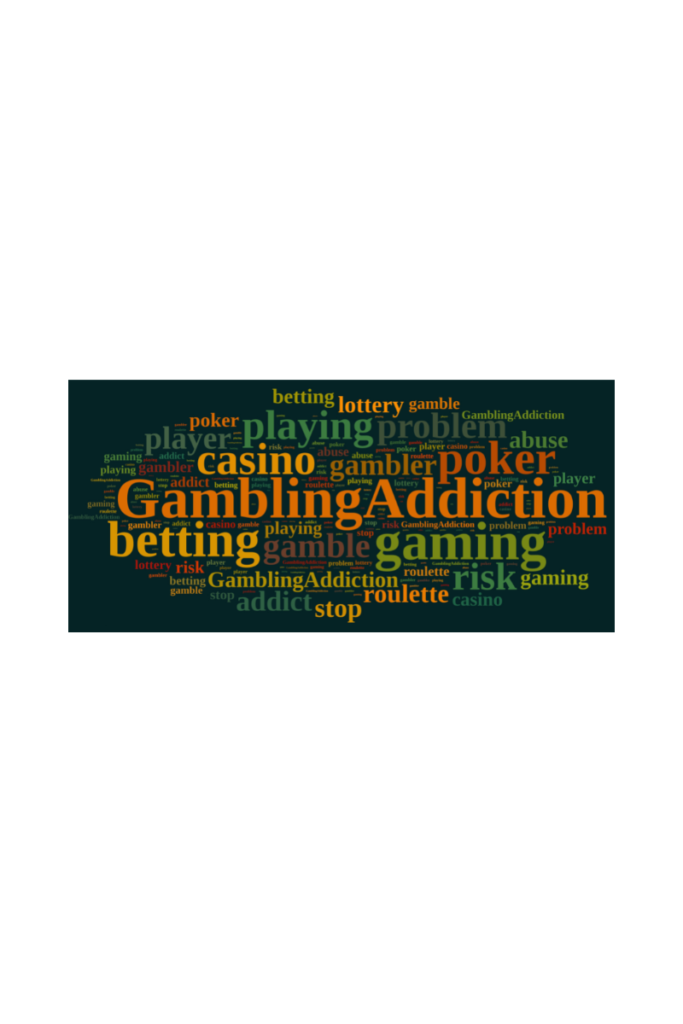Listen to Linda Milburn in action with Nova radio
Listen in on how she hypnotised Nat from the Nova Crew and one of her listeners in overcoming a bad habit
Let Linda personally help you overcome your bad habits, disorders or overwhelming problems
Hypnosis for Gambling – Using hypnotherapy to Overcome Gambling Challenges

From bingo to blackjack, scratch cards to slot machines, an estimated 1.6 billion people participate in gambling activities globally. In Australia alone, approximately half of the adult population gamble their money away in one form or another, and the nation boasts amongst the highest rate of gambling losses per capita on earth. This can lead to shocking levels of gambling addiction, ruining lives and causing high levels of stress, anxiety, and depression.
When the stakes become too high for some gamblers, problems with gambling and gambling addiction (also known as compulsive gambling or gambling disorder) have significant harmful effects on lives, often extending further than the individual, impacting family and jobs, and even leading to major health problems.
While more than 10 million people are believed to have sought help for problem gambling at some point in their lives, compulsive gambling is very difficult to overcome. However, there is help out there, and many people can manage their disorder with professional assistance from therapists who understand the triggers, factors, and difficulties associated with gambling. Hypnotherapy for gambling is one of the proven techniques, capable of providing the support and assistance that people need to face their gambling addictions and manage the underlying issues behind gambling addiction.
From high rollers to penny slots - Types of gamblers
So, when does gambling go from fun and harmless to problematic or pathological with serious consequences? Signs of a possible gambling problem include:
• Spending more on gambling than what is affordable
• Difficulties arising in personal relationships due to gambling
• A decrease in work performance and ambition
• Being unable to reduce or stop gambling
• Spending more and more time gambling
• Attempting to hide gambling activities
• Stealing or committing fraud to support gambling
• Asking for loans to cover gambling debts
There are different levels of gambling addiction that bring with them various associated issues. Where social or recreational gambling is accepted and seen as a fun, harmless distraction, problem gambling can quickly consume and even destroy lives.
We take a closer look at four different types of gamblers below:
• Professional Gamblers
This rarest type of gambler is worth discussing here because they exist almost at the opposite end of the gambling spectrum. Their exposure can lull people into believing that gambling is more lucrative than risky. These gamblers have extraordinary levels of self-control, patience, and frustration tolerance. The risk of addiction is extremely low as it can reduce self-control and logic, which would almost certainly result in more losses than wins.
• Relieve and Escape Gamblers
These gamblers typically use gambling as a coping mechanism to deal with depression, anxiety, and other causes of stress. As a result, their judgment can be diminished, and so large monetary losses can be incurred in a short amount of time. This, in turn, can exacerbate the underlying emotional issues in the long term, triggering even more amounts of stress and struggle. This type of gambling can become problematic if long hours are spent gambling to cope with emotional needs while struggling to maintain family obligations, work, and friendships.
• Problematic Gamblers
This type of gambling can lead to performance issues at work due to a lack of focus and gambling replacing long-term ambition and goals. Problematic gamblers also face financial problems when money allocated for other things is used to gamble or funds are used in an attempt to generate a sustainable income – something that almost never works. Relationship strains invariably also develop due to excessive time spent gambling, and negative gambling-related experiences extend to at least one other person in their life.
• Pathological Gamblers
Pathological Gamblers suffer from a gambling disorder that is classified by the DSM-5 (Diagnostic and Statistical Manual of Mental Disorders) as an addictive disorder. Also referred to as Compulsive Gamblers, their lives are entirely consumed by gambling and money. They have an uncontrollable urge to keep gambling despite its negative impact on their lives. This is often the most destructive and vulnerable type of gambler.
Spin to win - Causes behind gambling addiction
Precisely what causes someone to gamble compulsively isn’t well understood. Studies have shown, however, that problem and compulsive gamblers often suffer from behavioural and mood disorders such as impulse control, stress, depression, and anxiety. Some gamblers also lack the necessary coping skills to channel their emotions in a healthy way.
Rolling the dice - How hypnotherapy for gambling can help deal with these triggers
It is necessary to understand the underlying cause of a problem in order to treat it; something hypnotherapy is deeply rooted in. The use of hypnosis and relaxation techniques in hypnotherapy taps into the client’s unconscious to identify the cause and triggers for negative behavioural patterns. Once identified, hypnotherapy for gambling can help break the client out of the negative patterns and assist them in learning methods to channel their emotion in a healthy way to cope with triggers.
Hypnocare – A good bet on your wellness
Hypnotherapy for gambling has provided many gamblers with helpful treatment for long-term recovery from gambling addictions. While the path to overcoming gambling problems can be a long and challenging one, with Hypnocare, you’ll find a team of therapists who are invested in giving you the time, techniques, and tools you need to work on beating off the need to risk your money.
Pay us a visit or reach out if you’re facing difficulties in online gambling addiction or can’t seem to stay away from the casino. We’re here to help.
CHANGE YOUR MIND AND CHANGE YOUR LIFE!
CALL NOW FOR A FREE 15 MIN CONSULT
CLINIC AND ONLINE SESSIONS AVAILABLE
Perth/Fremantle Call Linda 0409079435
Midland/Mundaring Call Jan 0423936933
Medical Disclaimer
Results will vary from person to person.
For More Information & Disclaimer: Full Medical Disclaimer Here
Hypnocare Hypnosis Clinic Fremantle
Linda Milburn
Located in Hilton, 3 min from Fremantle, WA.
Phone:
0409 079 435
08 9388 6322
Hypnocare Hypnosis Clinic Darlington
Contact: Jan
Phone:
0423 936 933

Linda Milburn
Involved in Natural Healing for over 30 years
Fellow Member of the (AHA) Australian Hypnotherapist Association
Past SEO and Board Member of the AHA for 8 years
.

